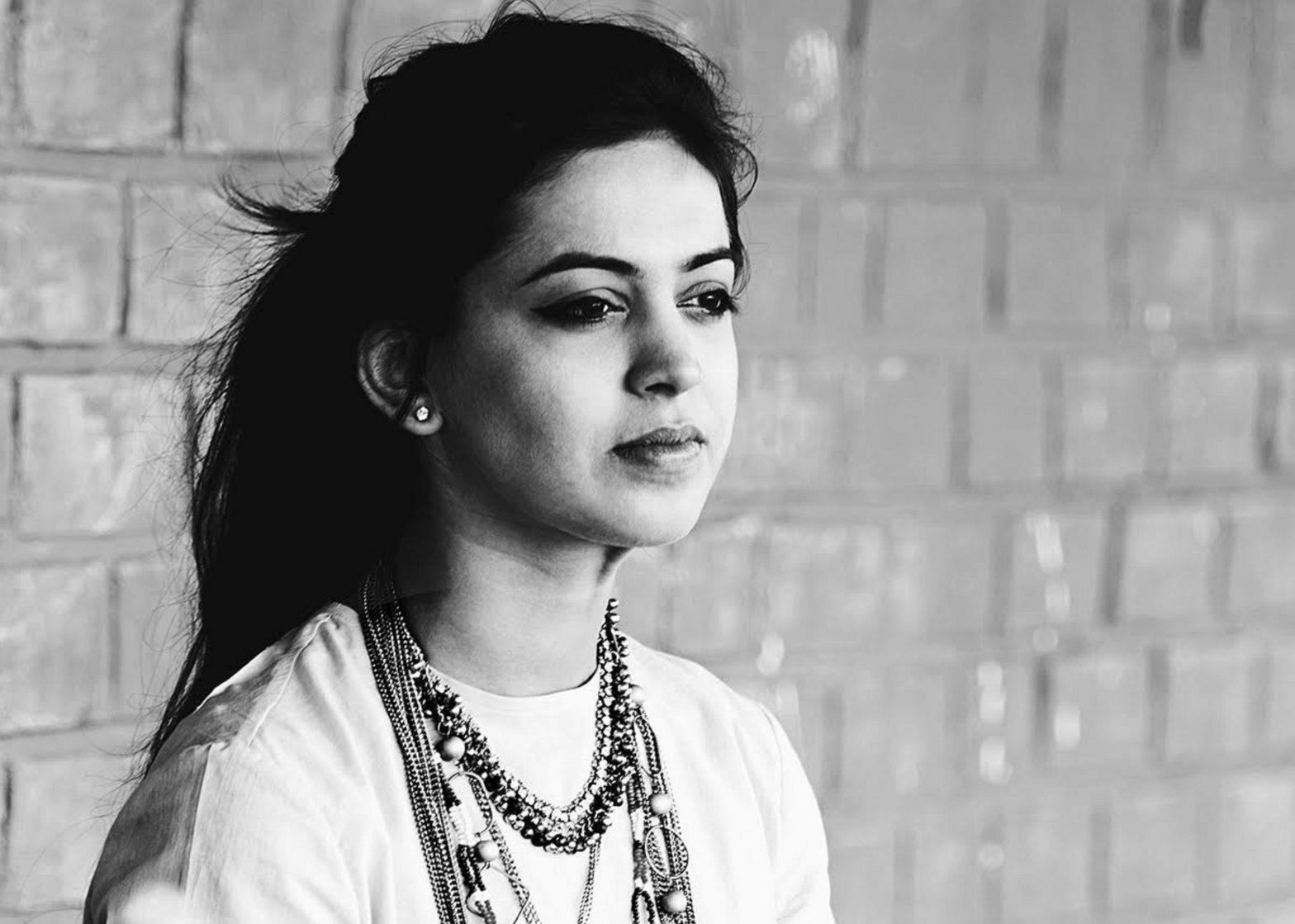
Inherent Conscious Living: “Kapra” to “Poncha”
Interview with Karishma Shahani Khan, Founder of‘Ka-Sha’.
Karishma Shahani Khan is an alumnus of the London College of Fashion. Her aesthetic is deeply rooted in sustainable practices to create conscious clothing that focuses on functionality and multi-layered roles of humankind. Ka-Sha imbibes its values further in ‘Heart to Haat’, a sister enterprise with a zero waste philosophy. The recipient of various design honours, Karishma engages extensively with institutions to interact with education systems of design on different levels. Through collaborations and fair-trade practices, she looks at design as a celebration to create positive change in human lives.
Upon asking Karishma what inspired her to found Ka-Sha, she responded, ‘I was always very intrigued by making things – I like working with my hands but I wasn’t sure if fashion was what it was going to be.’ Karishma shared that she comes from a family of freedom fighters, ‘outspoken and education focused’, appropriately dressed in powerful hand-woven sarees. It was these influential family members that first introduced her to craft and expressed that craft is purposeful, a form of storytelling.
Ka-Sha is born out of the idea of finding beauty in simplicity, resonating the deep rooted values of the Indian nation.Karishma grew up in Pune, India where the textile industry can be traced back to the Indus valley civilization as early as the 5th millennium BC. India has always been a relatively self-sufficient country; a country of farmers, and a country of producers from the very beginning. Therefore, for Karishma, sustainability and simplicity is embedded in her core: ‘for me, the idea of sustainability really comes from the idea that in my wardrobe, I have sarees that are over fifty years old. They were woven in a way in which they would last the test of time.’ This value of an extended life of garments echoes the ownership of heirlooms and keeping items for generations, an endeavour that is commonplace in India and neighbouring countries.
This form of sustainability lies in “who we are as a country” and is facilitated by widespread accessibility to neighbourhood tailors, through which customisation and alteration is effortless. Therefore, for Karishma, it is not about choosing to be sustainable or conscious in consumption, it is a way of life, a philosophy, that translates to different aspects of her lifestyle.
Karishma shares the Indian idea of Jugaad (alternatively Juggaar), which is a colloquial Hindi-Urdu word that can mean an innovative fix or a simple work-around, used for solutions that bend rules, or a resource that can be used as such, or a person who can solve a complicated issue.she highlights how many view this word as having negative connotations; however, for her, it is ‘extremely positive’ and ‘a way to do things creatively with lesser means’, a philosophy that has translated into the Ka-Sha label.
She argues that ‘Sustainability is not a western concept’ in any shape or form. India has practiced conscious living ‘forever’, and it is so ingrained in everyday living that most do not even realise it or have value for it. She gives a for example, that one ‘kapra’ (item of clothing) will not be thrown away until it becomes first a ‘pocha’ (cleaning cloth) and till you are not cleaning the floor with it, we use it in India: if that is not sustainability then I don’t know what is”
This deep rooted conscious living is translated into the label through upcycled clothing, for example, much of Ka-Sha’s first collection was produced using upcycled cement bags or onion sacks from the market. Karishma mentions how one observation of a homeless man wearing all his belongings in her hometown has deeply inspired her to rethink conventional fashion. ‘The idea that each layer embodies a different part of your personality, that when unveiled, comes to form’. The collections at Ka-Sha aim to embody these layers through practical, multi functional clothing. ‘ I wish to make clothes that you can wear from morning to night despite your calendar; for example, a reversible jacket that you can wear inside out for a more formal, evening look, or inside cuffs that can be turned up when rolling sleeves to give a completely different look and feel. These small changes that transform one item of clothing to fit your entire daily routine makes Ka-Sha a uniquely mindful brand. India has a rich culture of artisanal techniques which the brand cherishes and reinvents in a contemporary way. ‘This reinterpretation of traditional crafts require the same skill that culminate in a new output’
Ka-Sha’s sister label, ‘Heart to Haat’, takes conscious production a level further as a 100% upcycled brand. All of this label’s creations from homeware to shoes and accessories are using fabric embroidery from waste materials. Karishma aptly argues that material is only one aspect of sustainable production and processes. ‘People’ is an extremely important factor and Ka-Sha prides itself on being a brand that values its people to the extent that Karishma considers her employees to be ‘family’. Another distinguishing factor at Ka-Sha is that their labels have a personalised touch: the maker’s name, the techniques used and how many hours it took to make the garment, in order to create a deeper connection between the wearer and the maker of the item.
Karishma views Ka-Sha as an initial seed that has been planted, through which she has several growing roots of opportunity to build an ecosystem. An example of this is a new project started during the pandemic called ‘Banaii’, which gives people who desire to make products but for whom it may not be financially viable, a transparent production facility through which to produce their goods. Another such project called ‘Together’, aims to help local artisans who have lost their jobs due to Covid-19 by providing them with fabric to make masks and earn a livelihood.
Karishma states that the word sustainability tends to be ‘overused and over abused’ and it is difficult for any brand to be 100% sustainable. She prefers to address their mindset and actions as ‘a conscious value system that cares for our customers’ wardrobes, from how products are made, how they last, and the aftercare of the products’. Karishma highlights that Ka-Sha looks after customer’s purchases even ten years down the line, in an effort to extend and preserve the life of all garments.
Karishma’s Tip to consumers: Start investing in products for example, one thing that would last you longer than five things that you would throw. Instead of ending the life of your garment, hand it off to someone else, swap it with a friend. Open up the idea of community living.





